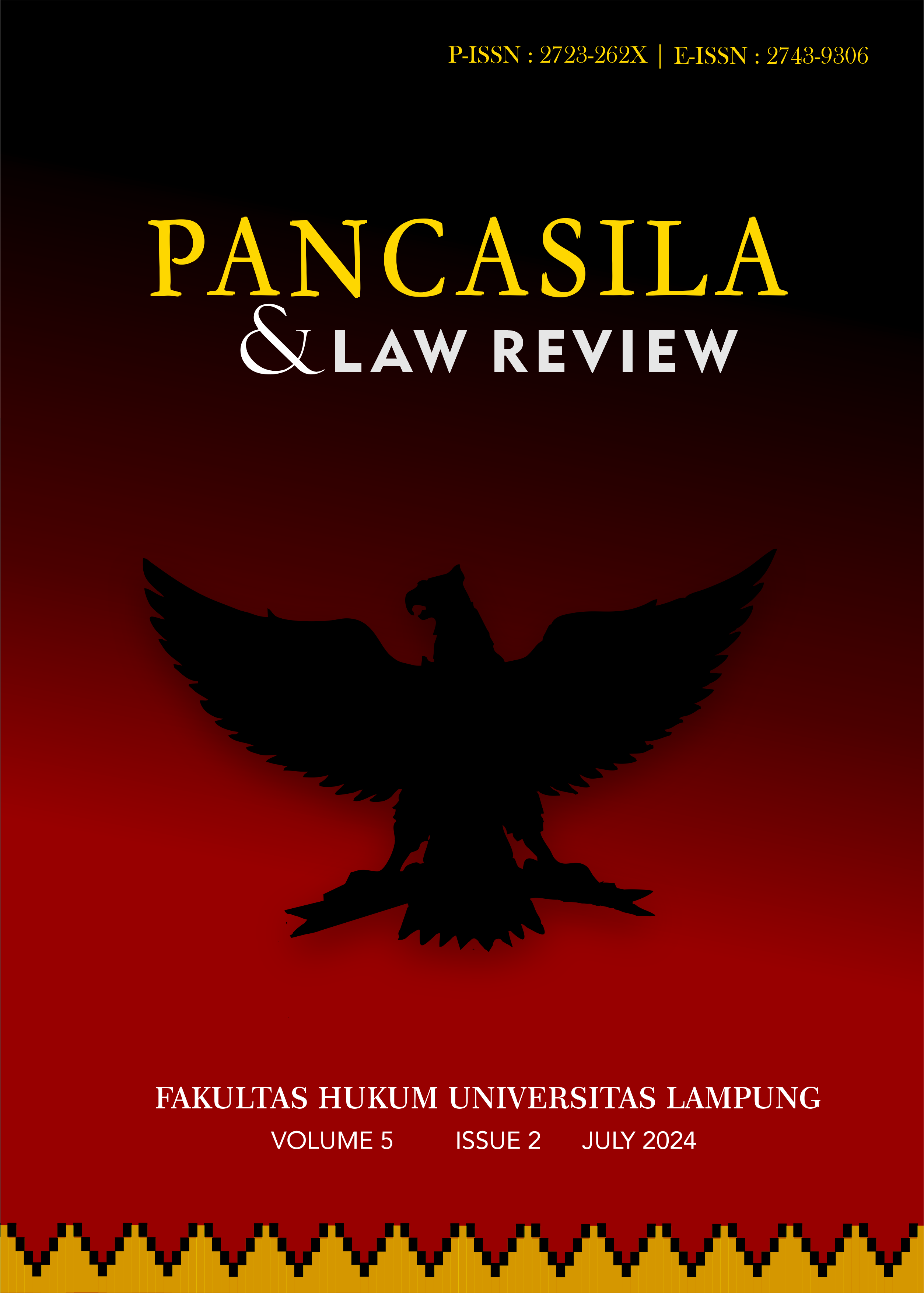Artikel (12)
The changes in societal dynamics following the Covid-19 pandemic prompted the government to seek appropriate policy directions for the civil servants, leading to the introduction of a Flexible Working Arrangement (FWA) policy, including Work From Home (WFH), as detailed in KemenPANRB Circular Number...
Pancasila and Law Review; Vol 3 No 2 (2022); 121-130 | 2022
Globalization has significantly impacted various sectors, including law enforcement in Indonesia, bringing both positive and negative consequences. Current law enforcement practices have often lacked a solid foundation, resulting in persistent injustices. Consequently, there is a need for both preve...
Pancasila and Law Review; Vol 3 No 2 (2022); 131-142 | 2022
The Attorney General's Office of the Republic of Indonesia has introduced a significant initiative to resolve cases through the termination of prosecutions based on restorative justice. The Prosecutor's Office, functioning as a case controller under the dominus litis principle, plays a crucial role ...
Pancasila and Law Review; Vol 3 No 2 (2022); 111-120 | 2022
The pretrial process creates uncertainty in compensating defendants who are acquitted and have final legal status. This research examines alternatives to pretrial compensation by analyzing criminal law policies. Using normative and sociological juridical approaches, and relying on secondary and prim...
Pancasila and Law Review; Vol 3 No 2 (2022); 99-110 | 2022
Law exists to serve humanity, not the other way around. Therefore, legal systems must address human needs and ultimately achieve substantive justice. Pancasila, as a foundational ideology, embodies this principle, particularly through its second and fifth precepts, which emphasize justice as a core ...
Pancasila and Law Review; Vol 3 No 2 (2022); 143-154 | 2022
The development and dynamics of society, including law enforcement in Indonesia, are highly complex. Key challenges include prison overcrowding, the handling of minor offenses, legal action involving children, and narcotics issues. Restorative Justice offers a potential solution to these legal probl...
Pancasila and Law Review; Vol 3 No 2 (2022); 89-98 | 2022
This article presents the challenges associated with work-related sexual harassment of female employees and assess whether binding legislative and policy frameworks exist to address the issue in Nigeria. To achieve this objective, the research employs both doctrinal and comparative approaches, revie...
Pancasila and Law Review; Vol 3 No 1 (2022); 63-88 | 2022
State sovereignty, in terms of physical territories or cyberspace, is fundamental to a nation's independence. However, cyberspace lacks clear territorial boundaries, complicating the exercise of jurisdictional authority. Indonesia's reliance on foreign cyber infrastructure heightens its cyber vulner...
Pancasila and Law Review; Vol 3 No 1 (2022); 13-26 | 2022
AbstractThe impacts and drawbacks of transshipment, which threaten sustainable development, underscore its classification as a transnational crime. While legal countermeasures are needed to address transshipment crimes in Indonesia, the practice persists due to the necessity of ensuring fish freshne...
Pancasila and Law Review; Vol 3 No 1 (2022); 49-62 | 2022
This research investigates the potential for government revenue through taxation of digital currencies, commonly known as cryptocurrencies, and digital assets such as NFTs. Employing a normative research methodology, the study analyzes the appropriate tax rates for cryptocurrencies and NFTs and exam...
Pancasila and Law Review; Vol 3 No 1 (2022); 39-48 | 2022


